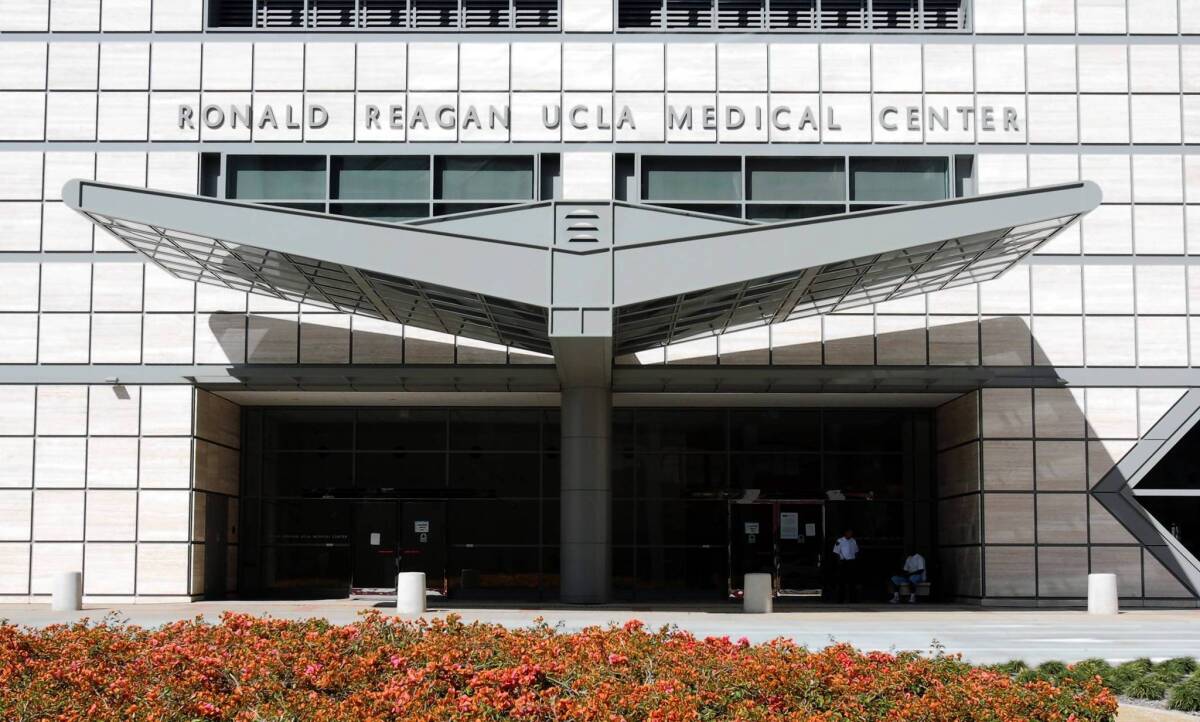How healthcare can work when it is a right, not a privilege

Republican lawmakers are determined to protect the American people from what they call “socialized medicine” and what the rest of the world calls affordable and accessible healthcare.
What seldom comes up in this discussion, though, is what exactly we’re talking about. Is it the government owning and running all hospitals? Is it Washington bureaucrats deciding who receives treatment and who doesn’t?
Or is it something closer to the experience Oak Park resident Mona Davis had during a recent visit to London?
ASK LAZ: Smart answers to consumer questions
She thought she’d come down with a cold while touring the British capital. As it worsened, she went out in search of a doctor or clinic.
Davis, 72, was directed to St. Thomas’ Hospital, which, in one manifestation or another, has been treating people since the 12th century.
Upon arriving at the facility, Davis told me, she was promptly escorted to what hospital staffers called A&E, as in “accident and emergency,” not the cable channel. Within minutes, she was shown to an examination area.
“I was there over five hours,” Davis recalled. “They took my vitals, took a chest X-ray, did blood tests and gave me an infusion of antibiotics.”
The diagnosis: Pneumonia. Davis was given prescriptions for an inhaler, a steroid and an antibiotic. A specialist demonstrated the correct way to use an inhaler.
“Where do I go to pay my bill?” Davis asked.
There would be no charge, she was told. Most treatment provided by the government’s National Health Service is free to British citizens.
Davis said she was American.
No worries. St. Thomas’ didn’t charge anyone for A&E. Ta-ta!
Davis filled her prescriptions at the hospital drugstore. The total bill came to about $37.
There will be some, I’m sure, who will point out that Britain’s National Health Service is frequently criticized for long waits and bureaucratic inefficiency. Such criticism may be warranted.
But what’s also undeniable is that Britain’s medical system, like those of virtually every developed country except our own, is predicated on the notion that healthcare is a right, not a privilege.
Quibble all you want about how other nations’ healthcare systems are structured, the core idea is that everyone is entitled to affordable medical treatment.
Compare Davis’ experience in London with what undoubtedly would have happened if someone from another country, lacking U.S. coverage, had shown up at an American hospital with pneumonia. The bill almost certainly would run in the thousands of dollars.
Heck, compare Davis’ experience with what happened to her husband, Robert, 71, after the couple returned to Southern California from Britain.
It was a weekend and his regular doctor’s office was closed. Feeling unwell, and mindful of his wife’s diagnosis overseas, he went to the emergency room at Los Robles Hospital & Medical Center in Thousand Oaks.
Blood tests were performed and a chest X-ray taken. Two days later, he had to return to the ER to double-check one of his blood tests. A bacterial infection was diagnosed.
The total bill for both hospital visits: nearly $17,000.
“You hear people all the time talking about how bad the British or the Canadian system is,” Davis told me. “All I know is that I got great treatment and I didn’t have to wait at all.”
And she posed this question: “Which would you rather have, my London bill or my husband’s California bill?”
Expensive tests
Along these same lines, Debra Wurzel, 57, of Santa Monica had to find a new doctor after her regular physician retired. She settled on a doctor at Ronald Reagan UCLA Medical Center.
As part of a routine physical, the doctor ordered some blood tests. “She just wanted to get a base reading for me,” Wurzel said.
The bill for the blood work arrived a few weeks later. The hospital was charging a total of $1,298, nearly $720 of which would come out of Wurzel’s pocket.
When her former physician ran the same tests, she recalled, her out-of-pocket expenses totaled $170.
Wurzel contacted the hospital and asked what was going on. The bill was so high, she was told, because the blood tests were considered outpatient treatment, rather than in-office care.
“Outpatient?” Wurzel said. “I didn’t leave the building. I just walked down the hall from my doctor’s office to have the blood taken.”
Dale Tate, a spokeswoman for UCLA Health Sciences, told me that anyone who isn’t hospitalized is considered a recipient of outpatient care.
She also said there’s no difference in how much outpatient and hospitalized people are billed for lab tests.
What that means, it seems, is that UCLA Medical Center will happily gouge all patients for routine lab tests.
Ask your doctor if he or she would mind if you had your blood tests done elsewhere. Companies such as LabCorp and Health Testing Centers will perform many tests at a fraction of the cost charged by hospitals.
David Lazarus’ column runs Tuesdays and Fridays. He also can be seen daily on KTLA-TV Channel 5 and followed on Twitter @Davidlaz. Send your tips or feedback to david.lazarus@latimes.com.







